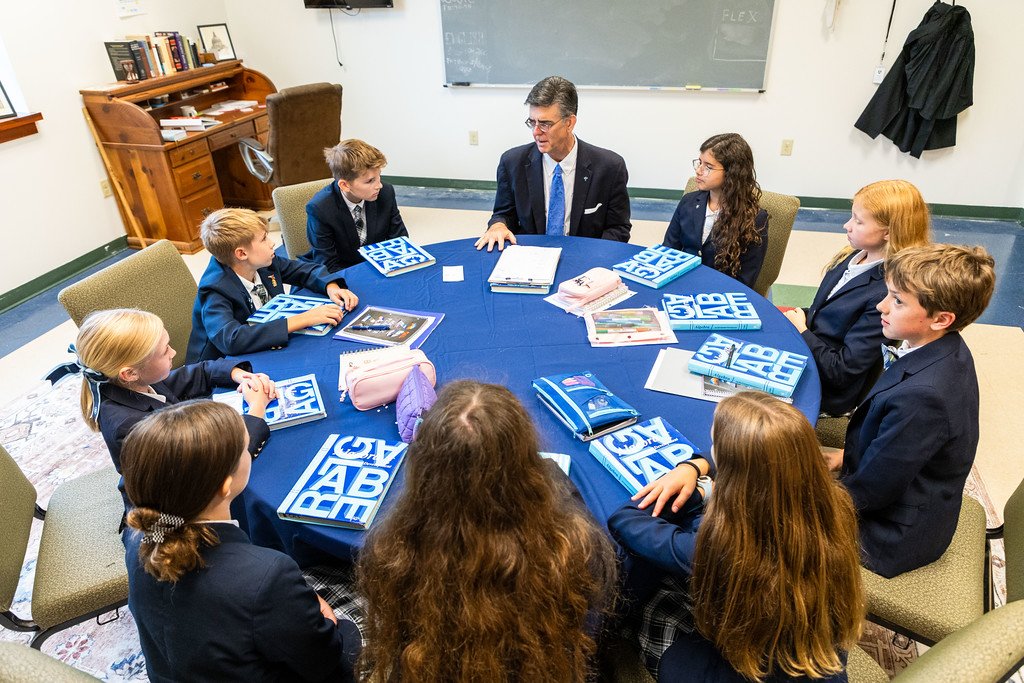The Logic Stage
Grades 7-8 (First & Second Forms)
Students in First and Second Forms are in the Logic Stage. Students in the Logic stage participate in Socratic discussions with their classmates and teacher by asking and answering questions with supporting facts in order to foster critical thinking.
Students in Logic School use their grammar skills to express logical thought in both oral and written form; they apply basic arithmetic skills to solve abstract problems; and they begin to make connections and comparisons between concepts. In short, they learn to apply and use the knowledge they have acquired in previous grades to answer increasingly difficult questions.
Students begin a formal study of logic in 1st form to develop their ability to correctly reason. They do all of these things as they continue to make connections across subjects, use all of their skills in every class, and see the Bible as foundational and the standard of truth across all subjects. The Logic School and Rhetoric School comprise the Hunter Upper School.
What Your Child Will Do
Participate in enriching field trips
Read excerpts from classics in Latin class
Write research reports to support a thesis and develop essay writing skills
Participate in Socratic discussions
Discuss and debate topics while studying Greek and Roman classics
Research and write a symposium paper
Develop algebra skills using Saxon Math
Develop formal logic skills beginning in 1st form
Memorize and recite Bible scripture
Books Your Child May Read
Billy Budd
Black Ships Before Troy
Captains Courageous
Edith Hamilton’s Mythology
Herotodus’ Histories
Ivanhoe
Pilgrim’s Progress
Plutarch’s Rise and Fall of Athens
Robinson Crusoe
The Hobbit
The Iliad
The Lord of the Rings
The Odyssey
The Poems of John Donne
The Poems of Williams Shakespeare
The Poems of Williams Wordsworth
The Screwtape Letters
The Stories of Nathaniel Hawthorne
The Wind in the Willows
Thucydides’ History of the Peloponnesian War
Watership Down
Our students learn to think logically, speak clearly, and write eloquently. At the completion of the Grammar and Logic stages of learning, students are well equipped to transition to the Rhetoric stage of learning (grades 9-12), where much fruit is borne from the watering and tending in the previous two stages of learning.





